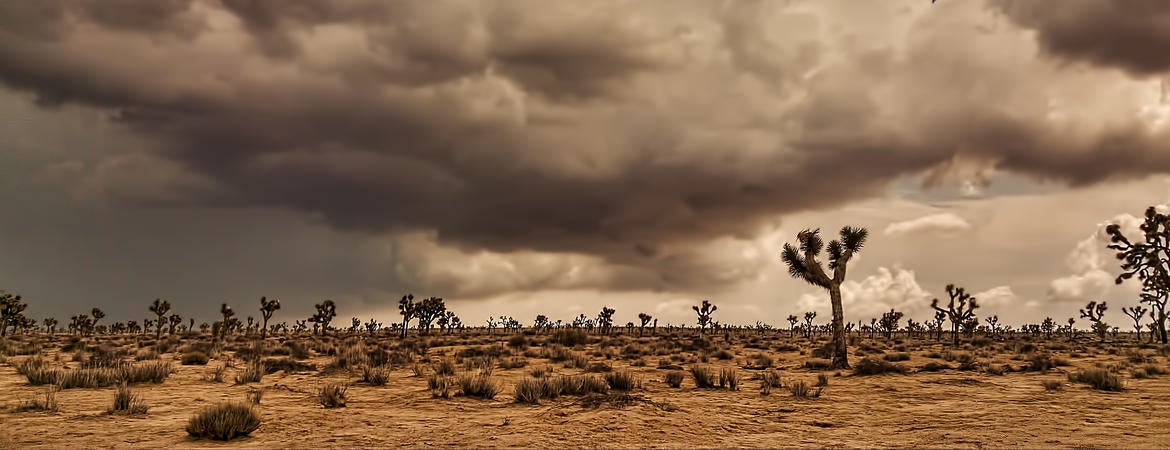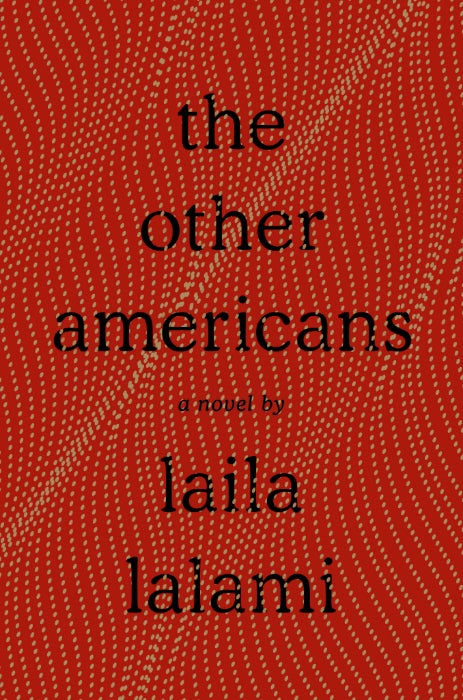
When Nora Guerraoui receives word her father has been killed in an apparent hit-and-run, she is forced to return to the small California desert town she left behind and contend with the many memories she’s tried to forget. So sets the stage of “The Other Americans,” the latest novel by Laila Lalami published by Pantheon on March 26.
Set in the present-day Mojave, what unfolds from tragedy is a complex portrait of those most affected by the death of Moroccan immigrant, Driss Guerraoui. His wayward daughter struggling to make it as a composer, his grieving wife still longing for their former home in Casablanca, a big city detective thrust into a small and unknown town, an insomnia-afflicted war-veteran-turned-sheriff’s deputy, an undocumented immigrant fearful of law enforcement and the sole witness to the accident, and a slew of other residents feel the ripples of his death, each speaking from their perspectives in alternating chapters.
Lalami, a professor of creative writing at the University of California, Riverside, is a Moroccan immigrant herself, raised in Rabat and later educated in Great Britain and the United States. She notes that being an immigrant has had a profound impact on the kinds of stories she chooses to tell.
“Often times in my novels, I write about people who’ve crossed borders,” she said. “Whether it’s an immigrant who’s trying to get from Morocco to Spain, or a 16th century slave who is brought to Florida, or a first-generation American in this novel who is forced to return home after the death of her father. In all of these books there’s that sense of crossing borders and dislocation and migration.”
Dislocation and a fleeting sense of home feature prominently in the novel, with each character having either a tenuous grasp on the concept of home or none at all. The novel’s central character Nora, for instance, was never rooted to her hometown or had a sense of belonging. And as the daughter of immigrants, she was subject to bullying in childhood by peers who saw her as “Other.”
“These multiple narrators each have a sense of feeling alienated — Nora feels alienated from her family, the detective who relocated from D.C. feels alienated in a small police department, the undocumented witness feels alienated from mainstream culture — and in that sense, the book is basically exploring what it means to be ‘Other’ in America, and that’s where the title comes from.”
The impetus for the story came from a personal experience of what Lalami refers to as every immigrant’s worst fear: being far away from loved ones when they need you most. She recalled having to rush to Morocco in 2014 after receiving a text that her father was very ill in the hospital and may die. Although he recovered, that fear lingered, and she began penning the novel shortly after.
“That scare that I experienced really brought home for me something that I think many immigrants fear, so in this book, I thought about writing about it to deal with that fear and to have this thing that scared me most, have it happen in this book and kind of explore it,” Lalami said.
Unlike her previous novels, this is the first to take place in contemporary America. The High Desert serves as the backdrop for a story rife with immigrant experiences, California being home to more immigrants than any other state — although, Lalami notes, their stories are often left out of popular media. The small town in which the story takes place both compounds the suspicion Nora feels, wondering if the familiar faces had a hand in her father’s death, while also highlighting disparities in race and class. She also noted her own affinity for the desert, often escaping the buzz of Los Angeles where she resides for the refuge of the Mojave.
Also a first for Lalami: the novel is told through the eyes of several first-person narrators, which presented a unique set of challenges.
“In each voice I tried to choose a particular linguistic aspect that’s different from the other voices, so that’s the trick and obviously it’s not something that happens overnight — it’s something that happens after a great deal of patience and through revision,” she said. “From draft after draft, new ideas happened and it’s in the process of revision that really that vision got refined, because writing is really about exploration.”
Small, unique details culminate to create distinct characters within her world. The war veteran sheriff’s deputy refers to a memory of a drill instructor wearing a “Smokey Bear cover,” a term used in the armed forces for a type of hat. Nora’s mother speaks in long, run-on sentences as she rolls through her thoughts. In the only chapter written in second person, the disassociation and isolation of the seemingly perfect sister, Salma, is punctuated by her voice once removed. Even Driss, dead from the beginning, gets to share his side of the story.
“As I started going along, I thought, now wait a minute, the guy is dead. But this is fiction and I thought it would be a playful thing to have in the book, and I kind of like it,” Lalami said. “It’s not tied down to a social-realist mode of narrative and it’s kind of freeing itself from it a little bit.”
Much like the complicated characters Lalami developed over the four years she spent writing the novel, the details in the story were the result of time and intensive research. She recalled spending 12 hours in a ride-along with a San Bernardino sheriff’s deputy, witnessing arrests and visiting a jail, and consulting with a former prosecutor about hit-and-runs. She even spoke with a collision expert to ensure the make and model of the car would result in a fatal accident.
“There’s all kinds of research that goes into the book, and it’s not necessarily obvious to the reader, but every detail that’s in there has been carefully selected and all of that gets woven into the narrative.” Lalami said.
What results is a story of modern America, both complex and nuanced, and a tapestry sewn together by the lives of disparate characters joined by a single tragic event. Beyond the mystery of who killed Driss, the novel examines love, grief, and what it means to be American, offering a glimpse into the internal and unknowable lives of its residents.
“My hope is that readers are going to be immersed in this world and come away feeling that it’s very difficult to look at a set of events and think that it only has one interpretation,” Lalami said. “There are always multiple ways of looking as a single event.”
“The Other Americans” is now available. A book talk with Lalami will be held April 8 at 3:30 p.m. at the UCR Center for Ideas and Society. The event is free and open to the public.
Lalami is the author of three additional novels including “Hope and Other Dangerous Pursuits,” “Secret Son,” and “The Moor's Account,” which won the American Book Award, the Arab American Book Award, and the Hurston/Wright Legacy Award and was a finalist for the Pulitzer Prize. Her essays and opinion pieces have appeared in the Washington Post, the Guardian, the New York Times, and many anthologies. She writes the "Between the Lines" column for The Nation magazine and is a critic-at-large for the Los Angeles Times.





